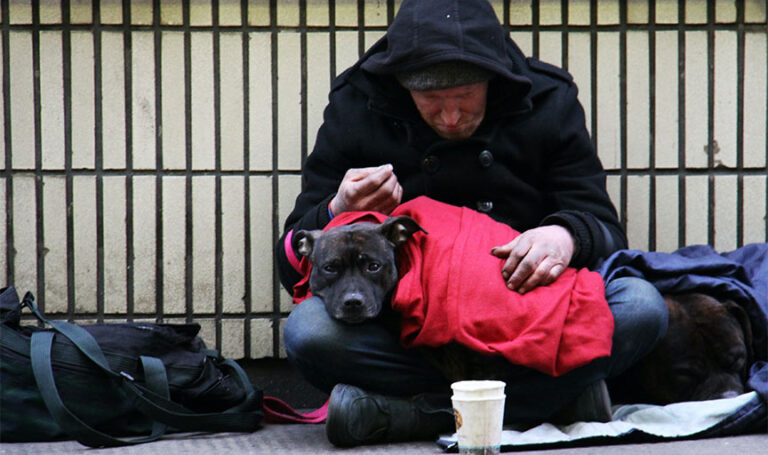Christmas on the streets: Inside the UK’s heartbreaking 14% homelessness increase
The festive season in England is set to be marred by a deepening homelessness crisis, with over 300,000 people, including nearly 140,000 children, facing the prospect of spending Christmas without a home, according to the latest figures in prominent housing charity Shelter’s Homelessness in England 2023 report.
Shelter’s analysis reveals a troubling 14 per cent increase in homelessness compared to the previous year, translating to an additional 38,000 individuals grappling with housing insecurity amid the country’s ongoing cost of living crisis.
This stark reality is captured by official homelessness figures and responses to Freedom of Information requests, exposing a distressing scenario where, on average, 3,000 people find themselves sleeping rough in England on any given night. A significant majority, comprising just over 279,000 individuals, primarily families, are residing in temporary accommodation.
As the nation contends with the devastating repercussions of the housing emergency, the looming Christmas period serves as a poignant reminder of the urgent need for comprehensive and practical solutions.
This imperative becomes even more pronounced in light of the controversial statements made by Suella Braverman and Rishi Sunak, with the dismissive notion that homelessness is merely a “lifestyle choice.”
Polly Neate, chief executive of Shelter, emphasises the urgency of the situation, telling the BBC: “The housing emergency is out of control. Chronic underinvestment in social homes has left people unable to afford skyrocketing private rents and plunged record numbers into homelessness.”
She continued: “It is appalling that the government has allowed thousands of families to be packed into damp and dirty B&Bs and hostel rooms, which are traumatising children and making people desperately ill.”
Temporary accommodation and its dilemmas
While ‘temporary accommodation’ may suggest a short-term solution, the stark reality is quite different. This term encompasses a range of housing options, from social housing to privately rented spaces secured through brokers, hostels, and even bed and breakfasts. Despite their name insinuating that these half-baked solutions are not permanent, these accommodations often extend for months and, in some cases, years, leaving those in need of a place to call home awaiting a solution that never comes.
In London, analysis of government data by The Observer has exposed alarming statistics, indicating that more than one in ten children in specific areas of the capital are living in precarious conditions.
SCREENSHOT spoke with Reverend Alex Gyasi from Highway House, a homeless shelter based in Tottenham, London. We asked him whether he had observed an increase in demand at the shelter during this Christmas period: “Yes, there has been a significant surge in demand for our homeless centre. A considerable number of cases involve legal migrants who have recently been granted their permits. Once their permits are approved, they are directed to leave the centre and find accommodation on their own. The Home Office has granted many individuals without providing external support, leading a substantial portion of them to end up on the streets—unfortunately, homeless and without any assistance.”
The homelessness crisis’ impact on children
Karen Buck, the Labour MP representing Westminster North, emphasised the adverse impact on children due to frequent school changes or lengthy commutes across the city. She highlighted the profound damage this causes to their health, education, and future prospects. Buck pointed out that London, especially inner London, is at the forefront of the housing crisis.
In the face of these challenges, it becomes increasingly imperative for policymakers to reevaluate their strategies and focus on comprehensive solutions that address the root causes of homelessness, providing lasting support for those in need.
Are we on the verge of entering a new era akin to the current crisis in San Francisco? There is a rising apprehension that prominent UK cities, particularly metropolitan centres like London, may soon mirror cities in the US.






